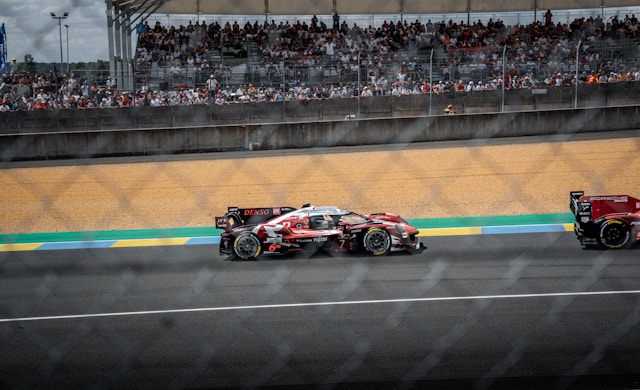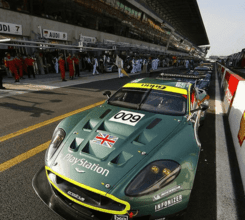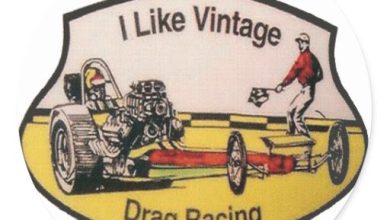Toyota Gazoo Racing: Dominating Motorsport and the Future with Haas F1 in 2026

Toyota Gazoo Racing (TGR) has established itself as one of the most successful and innovative motorsport divisions in the world. From dominating the World Endurance Championship (WEC) with the Toyota GR010 Hybrid Hypercar to making waves in rally racing with the GR Yaris, Toyota’s performance arm continues to push boundaries. Now, with rumors swirling about a potential Toyota Gazoo Racing and Haas F1 collaboration in 2026, the brand is poised to make an even bigger impact in Formula 1.
✔ Toyota Gazoo Racing’s current motorsport dominance
✔ The significance of a potential Haas F1 and Toyota partnership in 2026
✔ How Toyota’s hybrid and hydrogen tech could shape F1’s future
1. Toyota Gazoo Racing’s Motorsport Legacy
A. World Endurance Championship (WEC) Dominance
Toyota Gazoo Racing has been a powerhouse in endurance racing, winning multiple 24 Hours of Le Mans titles with its hybrid Hypercar, the GR010. Key achievements include:
- 2021, 2022, 2023 Le Mans victories
- Unmatched hybrid efficiency in LMP1 and Hypercar classes
- Development of hydrogen-compatible race tech
B. Rally & Rallycross Success
- Toyota GR Yaris Rally1 – Dominating the World Rally Championship (WRC) with Sébastien Ogier and Kalle Rovanperä.
- GR Corolla in U.S. rallycross – Proving Toyota’s versatility in different racing formats.
C. Dakar Rally & Off-Road Racing
- Toyota Hilux T1+ – A force in the Dakar Rally, showcasing durability and speed.
2. Haas F1 & Toyota Gazoo Racing 2026: What We Know
Rumors suggest that Toyota Gazoo Racing could partner with Haas F1 in 2026, coinciding with F1’s new engine regulations. Here’s why this matters:
A. Why Haas F1?
- Haas currently uses Ferrari engines but seeks more independence.
- Toyota’s hybrid and hydrogen expertise aligns with F1’s sustainability goals.
- A works partnership could elevate Haas from a midfield team to a contender.
B. Toyota’s Potential F1 Return
- Toyota last competed in F1 in 2009 but left due to financial reasons.
- With GR’s motorsport success, a return with Haas could be strategic.
- Toyota’s hydrogen combustion tech (tested in Super Taikyu) may influence F1’s future fuels.
C. 2026 F1 Engine Rules: A Perfect Fit
- More electrification – Toyota’s hybrid experience (from WEC) is a major advantage.
- Sustainable fuels – Toyota’s research into hydrogen and synthetic fuels aligns with F1’s carbon-neutral goals.
3. How Toyota Gazoo Racing Could Change F1
If the Haas F1 Toyota Gazoo Racing 2026 collaboration happens, here’s what could change:
A. Technical Advancements
- Hybrid powertrain innovations from Toyota’s Le Mans program.
- Hydrogen-compatible engines – A potential game-changer for F1’s green initiatives.
B. Haas’ Competitive Leap
- Factory backing could mean better funding and R&D.
- Driver development – Toyota may push for a Japanese F1 star (like Ryo Hirakawa).
C. Marketing & Branding
- GR-branded Haas cars – Similar to Alfa Romeo’s Sauber partnership.
- More U.S. & Japanese fan engagement – Expanding F1’s global reach.
4. Toyota Gazoo Racing’s Motorsport Future
Toyota Gazoo Racing is already a leader in endurance and rally racing, and a Haas F1 partnership in 2026 could mark its triumphant return to Formula 1. With expertise in hybrid systems, hydrogen tech, and high-performance engineering, TGR is well-positioned to influence the next era of F1.
🚀 What’s Next?
- 2024 WEC & WRC seasons – More dominance expected.
- 2026 F1 rumors – Will Toyota confirm the Haas deal?
#ToyotaGazooRacing #HaasF1 #F12026 #GRMotorsport #LeMans



